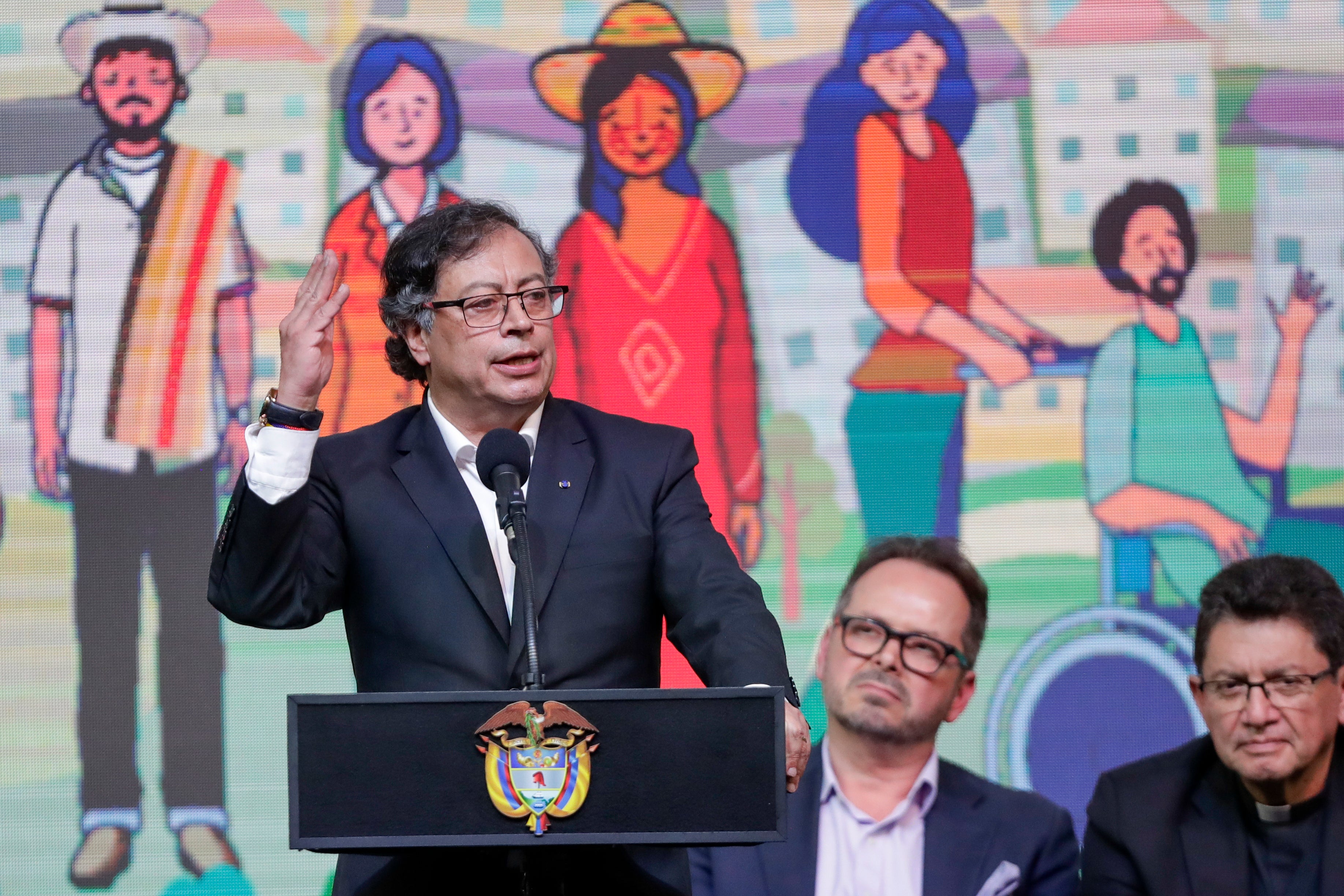Colombia and the National Liberation Army rebels extend ceasefire for a week as talks continue
The Colombian government and the nation’s largest remaining rebel group have announced that they will extend their current ceasefire by one week, while delegates from both sides who are meeting in Cuba continue to discuss policies that could secure a longer lasting truce

Your support helps us to tell the story
From reproductive rights to climate change to Big Tech, The Independent is on the ground when the story is developing. Whether it's investigating the financials of Elon Musk's pro-Trump PAC or producing our latest documentary, 'The A Word', which shines a light on the American women fighting for reproductive rights, we know how important it is to parse out the facts from the messaging.
At such a critical moment in US history, we need reporters on the ground. Your donation allows us to keep sending journalists to speak to both sides of the story.
The Independent is trusted by Americans across the entire political spectrum. And unlike many other quality news outlets, we choose not to lock Americans out of our reporting and analysis with paywalls. We believe quality journalism should be available to everyone, paid for by those who can afford it.
Your support makes all the difference.Colombia's government and the nation’s largest remaining rebel group announced Monday they will extend their current ceasefire by one week, while delegates from both sides who are meeting in Cuba continue to discuss policies that could secure a longer lasting truce.
In a joint statement, the government and the National Liberation Army said they will abide by the conditions of the current ceasefire, which began in August and was set to expire Monday night.
The current ceasefire agreement says that both sides will not attack each other, and that one of the goals of the ceasefire is to “improve the humanitarian situation” of communities affected by fighting.
However, there are no provisions in the current ceasefire that stop the rebels from kidnapping civilians for ransom or from recruiting minors, two practices that have continued to take place in the last months.
The rebels meanwhile have complained that during the current ceasefire, the military has launched operations in areas under their control.
In Monday’s joint statement, both sides said they will continue to discuss ways to “strengthen” the ceasefire.
Colombia’s government has been pressing the rebels to stop kidnappings. But the group has asked the government for alternate ways to finance their operations, and have said that they will only stop kidnappings as part of a new ceasefire agreement.
In October, the ceasefire between the government and the ELN entered a critical moment when a group of rebels kidnapped the parents of Luis Diaz, one of Colombia’s most famous soccer players. Diaz’s mother was quicky rescued by police. While his father was released 12 days later, after numerous protests and mediation efforts.